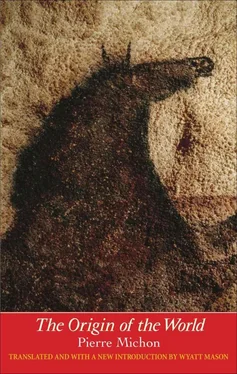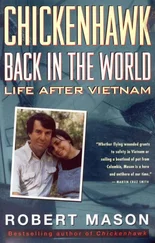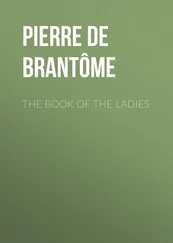Pierre Michon - The Origin of the World
Здесь есть возможность читать онлайн «Pierre Michon - The Origin of the World» весь текст электронной книги совершенно бесплатно (целиком полную версию без сокращений). В некоторых случаях можно слушать аудио, скачать через торрент в формате fb2 и присутствует краткое содержание. Год выпуска: 2013, Издательство: Yale University Press, Жанр: Современная проза, на английском языке. Описание произведения, (предисловие) а так же отзывы посетителей доступны на портале библиотеки ЛибКат.
- Название:The Origin of the World
- Автор:
- Издательство:Yale University Press
- Жанр:
- Год:2013
- ISBN:нет данных
- Рейтинг книги:3 / 5. Голосов: 1
-
Избранное:Добавить в избранное
- Отзывы:
-
Ваша оценка:
- 60
- 1
- 2
- 3
- 4
- 5
The Origin of the World: краткое содержание, описание и аннотация
Предлагаем к чтению аннотацию, описание, краткое содержание или предисловие (зависит от того, что написал сам автор книги «The Origin of the World»). Если вы не нашли необходимую информацию о книге — напишите в комментариях, мы постараемся отыскать её.
The Origin of the World — читать онлайн бесплатно полную книгу (весь текст) целиком
Ниже представлен текст книги, разбитый по страницам. Система сохранения места последней прочитанной страницы, позволяет с удобством читать онлайн бесплатно книгу «The Origin of the World», без необходимости каждый раз заново искать на чём Вы остановились. Поставьте закладку, и сможете в любой момент перейти на страницу, на которой закончили чтение.
Интервал:
Закладка:
Once, during Christmas vacation, we were coming back from one of these trips. Between les Martres and Castelnau, coming from les Martres, the road briefly follows the valley before drawing back and taking a detour toward this place I’ve already mentioned, where there are walnuts, and the hallucinogenic fields that carried Yvonne. At the point where the road veers away from the Beune but is still close to it, you see a dirt road marked by a sign from the local administration: Prehistoric Cave of Chez-Quéret. We had already seen this sign, but the airplanes had overlooked it, the cave not appearing in the guidebooks that direct one’s choices. The afternoon had barely begun, the old Renault had already served its amorous office, we had left early in the morning. The road drew us onward. We committed ourselves to it.
It had started to rain again after the eight days of miraculous cold that had delivered Yvonne, whipped. The byroad collapsed into a bog, we bounced around, our wipers beat back and forth. We were above the cliff, the road descended a bit farther; halfway down, there was a house, a barn, a few outbuildings, a field that seemed enormous to me in the black rain. We were at a lower elevation than chez Hélène, but on the same lip of the cliff; the site, the escarpment, the bare limestone were all identical. The high waters of the Beune rose nearly to the road as she widened before the house, flooding the road below; she was muddy, in a hurry, devouring the remains of icicles hanging down all along her banks, like bits of old rags left there through the bitter cold; the bare trees were dripping before us, lamentable like the famous little mammoth of Pech-Merle, which is hairy and dripping, on the thirty-ninth day of the Flood. The scene was sweetly sinister. Mado’s sage duffel coat and jeans leaping animatedly from the car warmed my heart, made me laugh. There was a sort of curate’s garden to cross; we knocked; someone shouted for us to come in. In the big kitchen floated an acrid odor of dust, immemorial and fossilate, of mud so ancient it had become edible, the smell of cooking beets. Jean the Fisherman, a knife in his hand, was making a soup. From his pouch, a shoulder bag open on the table next to the peppers, protruded an open pack of corn Gitanes.
We wanted to go in. He told us that he didn’t deal with the cave, that Jeanjean wasn’t around but that he should be back soon, and so he had us sit down. I knew that the fish he sold to restaurateurs throughout the region weren’t enough to live on: Jean the Fisherman worked for a farmer from the village of Martres, Jean Lavillatte, who ever since he was a young boy had been called Jeanjean, and who was still called that even though he had grown up, perhaps to distinguish him from the Fisherman with whom people confused him. But if this nickname was familiar to me, rolled like a fat smooth pebble in the mouths of the drinkers chez Hélène between remarks about fishing or threshing machines, I hadn’t met the man. So it was there, chez Jeanjean.
Jean the Fisherman asked after news about his mother, to say something, I suppose, and Mado joined in soon enough. She had lit a corn Gitane to make herself seem more at ease, more blue-collar, smoking with great seriousness, her legs crossed and a hand in the pocket of her open duffel coat. She was pretty, natural in this role of conversationalist that seems to bloom in women when their breasts grow, diligent in their pursuit of its mastery like my students are at their times tables. Her feet were moving, hers too. She looked bravely at Jean the Fisherman. But his good will slipped a bit: he didn’t stop smiling, beneath this shower of words he continued to build his soup and his stare didn’t waver from the potatoes his knife bit into; the fine pointed profile remained in shadow; he responded perfunctorily and had the air of someone who didn’t give a damn. He had an air of embarrassment that seemed out of place on him, so delicate, so animated, so playful: he was bothered perhaps that he wasn’t far away from here, leaning over the Beune, at night; bothered that we had surprised him during his domestic duties; anguished above all that a young girl was talking to him about his mother as though she knew her better than he, and she did know her better than he, since they were women. He was almost under the eyes of his mother, and his mother was eighteen. He knew this old sweet song, of course, irresistible as it was, and could do little else but focus on his potatoes and smile. He disappeared into this smile, he walked along the river: perhaps he would have preferred to disappear, would rather have been myth than man, pure absence, a glorious apparition always regretted and praised in the mouths of drinkers, like some memory of a day fly-fishing that was only a dream, with trout this big. But he was there: upstream toward Saint-Amand where the two Beunes flow, Jean the Fisherman was fishing, whipping the water and grabbing the scales, but farther downstream he drudged like the others near les Martres, even here on Jeanjean’s farm.
The rain threw itself against the windowpane. It was three according to the grandfather clock. In Castelnau, Yvonne, who didn’t talk to men about their mothers, who didn’t talk about anything because maybe what weighs on men’s stomachs weighed on her voice, who therefore talked to them about everything and nothing, Yvonne had just appeared from the waist up behind her counter, her invisible skirt caressing her thighs. She smiled at the buyers of loose tobacco. Boatmen on the Beune rowed toward her; behind they brought a whole team, heads leaned forward beneath great streaming hats, with sharpened blades beneath their coats. I was relaxing into the sweet earthy odor of the beets, I was thinking about her, about the somber appetites of the boatmen. I had stopped listening to Mado babble; steam was lifting the lid of the casserole, Jean the Fisherman was having at the peppers. The door opened, a man entered dripping, wearing a big fur-lined jacket, a balaclava, Wallachian. He freed himself of his gear and appeared: I knew him, I recognized his low sort of elegance, his gentle, slender hand that glided his hat from his head. It was the man with the Peugeot who had made Yvonne blush. My dream had taken flesh, it aligned itself with the series of events that one believed to be real; I had before me this blush, this pathos that had bitten her cheeks. Yvonne’s blood beat briefly within my own. I almost saw her there in her stockings. She was behind me, the oven at her hips and steam at her mouth, boatmen holding her roughly. Jeanjean was all over us, pleasant, stocky; he shook our hands like we were old friends, the eager smile, happy; he was extraordinarily at ease, trafficking in this ease, drunk from it, holding forth with this somewhat drunken contentment that never left him. It wasn’t that he was full of himself, that there was a trace of self-importance about him, some maneuver by which he tried to get the best of others with this drunkenness; it seemed instead that he would more happily share it: but what did make him happy and danced in his eye was out of reach, was beyond him, detached, as though he were still fishing the Beune even as he spoke with us here. Underneath he seemed calm. It was contagious, Jean the Fisherman’s white teeth flashed in an unembarrassed smile. Jeanjean washed his hands, leaning before a little mirror on the sink, smoothing down his thick dark hair with his fingertips, with the same tense satisfaction. He must have been about fifty, but his vigorous drunkenness made him seem younger. He took a pocket lamp and led us outside without his coat; he ran through the rain and entered the barn. He had told us: the entrance to the cave was at the back.
Five
In the barn,filling the space with its incomprehensible gears, was a green John Deere combine harvester. We skirted around the machine, worming our way along the length of the wall. There was no wall at the back, it was built onto the cliff. The entrance to the cave was shorter than an average man, about Mado’s height: we went in behind Jeanjean. It was as it always is when you walk into these antechambers and you don’t know if you’ll fall upon a nave of pictures, triumphant cows, or frightened wolves, a vague painted hand, or nothing; neither more nor less so; we followed the circle of his flashlight that he directed where we stepped. We climbed and descended between crumbled stones, we wormed through the fault, we trampled through sinkholes where stones slept, we couldn’t make sense of anything. We were afraid of bumping our heads. Everything brimmed with water, the pale soaked clay stuck to our soles, the rains of this sodden winter dripped from above, rivering down in a thousand places; I thought about the floods of fifty centuries that had streamed within, when the glaciers were wreaking their havoc. It was warmer here than on the surface: this hot breath added to the discomfort of being beneath the dead, as if an animal hanging from the vault were breathing on you, crawling comfortably over the ruined sands, always a step ahead of you, just beyond the flashlight’s beam but over his shoulder and turning his muzzle toward you and waiting for you at the tunnel’s fork, a great, ambulatory abstraction, chaotic and ready to manifest in the low lamplight, something more piercing than Anubis, more powerful than a bull, the universal miasma with the head of a dead sheep, with the teeth of a wolf, straight ahead and upon you in the shadows and watching you. The passageway was long, punctuated by chimneys, small rooms; Jeanjean would stop in these for an instant, walk his beam around the walls, say a few words, geology and anecdote, but he was eager to go farther. We saw no traces of human habitation. I sensed that Mado was somewhat upset, she was clutching my arm and stumbling; at the top of a dry, steep, sandy path where she began to tire, Jeanjean opened a small, waterproof case on the wall, illuminating an electric meter; he threw the circuit breaker. An enormous room illuminated brightly.
Читать дальшеИнтервал:
Закладка:
Похожие книги на «The Origin of the World»
Представляем Вашему вниманию похожие книги на «The Origin of the World» списком для выбора. Мы отобрали схожую по названию и смыслу литературу в надежде предоставить читателям больше вариантов отыскать новые, интересные, ещё непрочитанные произведения.
Обсуждение, отзывы о книге «The Origin of the World» и просто собственные мнения читателей. Оставьте ваши комментарии, напишите, что Вы думаете о произведении, его смысле или главных героях. Укажите что конкретно понравилось, а что нет, и почему Вы так считаете.












